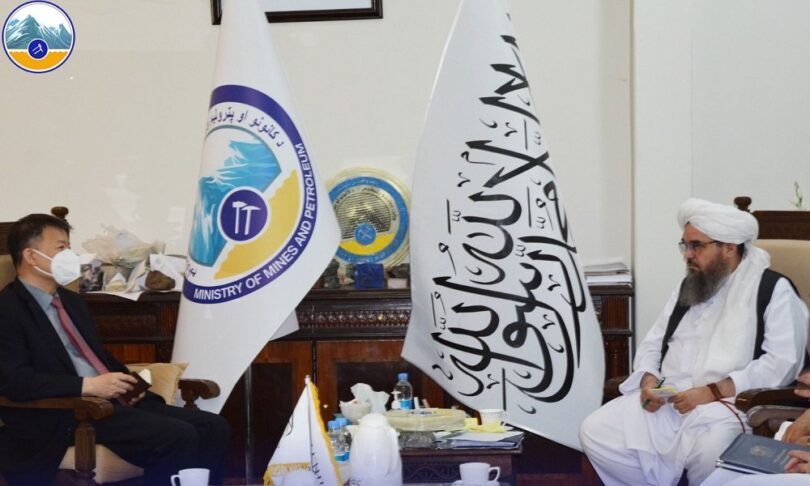KABUL (Khaama Press) : Acting Minister of Mines and Petroleum of Afghanistan, Shahabuddin Delawar, met Chinese Ambassador Wang Yu in Kabul to discuss Chinese projects and investments.
According to a statement from the Ministry of Mines and Petroleum, during the meeting, the officials discussed investment potential, the extraction process in the Kashkari oil reservoirs, and the start of construction on the Mes Aynak copper.
The Chinese ambassador expressed his satisfaction with his visit to the northern regions, which included the visit to the Kashqari oil field, and he offered details about the project’s financial, administrative, and technical plans.
Meanwhile, the Ministry called for speeding up the implementation phase of the project and social services included in the contract.
According to the report, several countries, including China, are interested in investing in Afghanistan’s ore deposits, including Lithium.
“Several countries and investors have expressed interest in the lithium deposits in addition to the Chinese. The Chinese even said they are prepared to invest $10 billion,” Ministry said.
“We have large reserves of Lithium worldwide. Our country is on the global list of countries rich in Lithium, and our lithium reserves are largely in Kunar, Nuristan and Helmand provinces,” according to the Ministry.
Earlier in April, the Ministry of Mines and Petroleum said that a Chines company, Gochin expressed its interest in investing $ 10 billion in Afghanistan’s lithium resources.
The statement said the investment would create 120,000 direct and a million indirect job opportunities in the country.
China has influenced Afghanistan through relations with the present government on an economic and investment level ever since the Taliban took over the country.
According to several media reports, Chinese corporations have long desired access to Afghanistan’s extensive and productive lithium mines, estimated to be worth more than $3 trillion.







